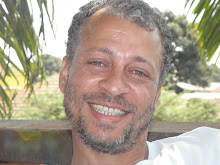terça-feira, 20 de novembro de 2012
Global Insider: ECOWAS Mission in Guinea-Bissau Shows Little Success
World Politics Review
At a summit meeting earlier this month, leaders from the Economic Community of West African States (ECOWAS) extended the mandate of a small peacekeeping force in Guinea-Bissau that was put in place after a coup in the West African state in April. In an email interview, Lars Rudebeck, a professor emeritus of political science at Upsalla University in Sweden, discussed ECOWAS’ mission in Guinea-Bissau.
WPR: What is the composition of the ECOWAS force in Guinea-Bissau, and what are its goals?
Lars Rudebeck: The force is made up of around 600 soldiers from Burkina Faso, Senegal and Togo, according to ECOWAS. It was initially deployed in May 2012 for six months. At the ECOWAS summit meeting in Abuja, Nigeria, earlier this month, the decision was made to extend the mandate for the force for another six months. It is reported that Nigerian troops will now be substituting for some of the others.
The ECOWAS force was deployed after a roughly equally large Angolan force was obliged to leave after the military coup on April 12, 2012. The Angolan soldiers had arrived in March 2011 on invitation by the legal government that was overthrown by the coup. They had all left by early June 2012.
The official reason for the presence of the ECOWAS force is to support and help pave the way for peaceful transition/return to constitutional democracy, after the electoral process was interrupted in April between the first and second rounds of the presidential election then underway. Underlying this are interests in control - West African, particularly Senegalese and Nigerian, as opposed to Angolan - and a measure of stability.
WPR: How effective has the mission been?
Rudebeck: The short answer is that, so far, the mission has not been effective at all. Overall the political, economic and social situation seems to have continued to deteriorate since the coup. The following are a few indications:
- Frequently closed banks, which cause great difficulties for, among others, farmers attempting to market their cashew harvest, due to lack of buyers' access to cash. This in turn is serious both for the farming population, the great majority in Guinea-Bissau, and for the national economy - cashew exports are almost the sole source of foreign currency besides foreign aid, which is also dwindling.
- Frequently closed schools, due to teachers striking over unpaid wages.
- Difficult access to all kinds of oil-based fuels.
- Rising unemployment in urban centers.
- No apparent end in sight to Guinea-Bissau's role as a significant hub in drug trafficking between Latin America, especially Colombia, and Europe.
- The sacking in early August 2012 of the director of the independent social science research institute INEP, who had come out openly in May in support of an immediate return to constitutional democracy.
- An armed attack on a military base near Bissau, the capital city, on Oct. 21, in which six assailants and one guard were killed. The leader of the assault, an army captain, was caught and is now being held in jail.
- The severe beating of two leading representatives of the democratic opposition outside Bissau on Oct. 23. They were then dumped in the countryside.
WPR: How does the mission in Bissau reflect on ECOWAS' larger role as a conflict manager in West Africa?
Rudebeck: To date, it does not reflect very positively, judging from the lack of success. Still, the fact that ECOWAS intervened at all probably looks better, so far, than if it had simply remained passive. In the longer run, however, it is an increasingly serious problem for ECOWAS that the entire "international community," with ECOWAS as the sole significant exception, refuses to accord any legitimacy at all to the coup government ECOWAS itself is cooperating with.



